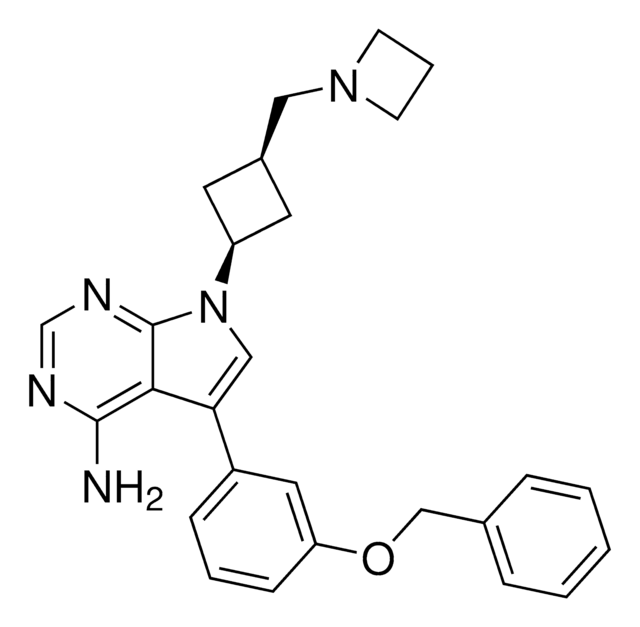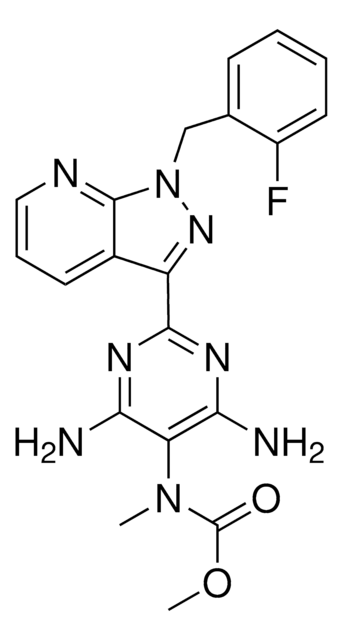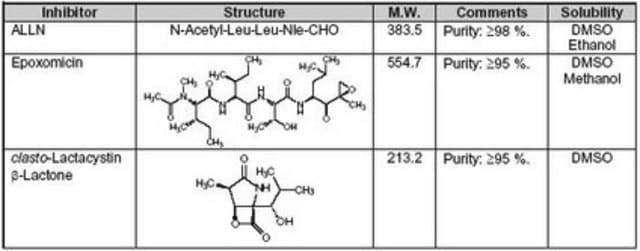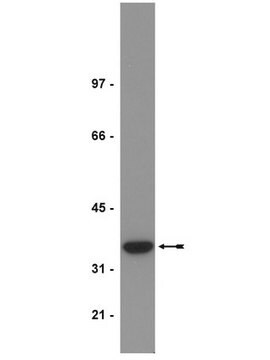Fontos dokumentumok
SML3675
GSK1904529A
≥98% (HPLC)
Szinonimák:
GSK 1904529, GSK 1904529A, GSK 4529, GSK-1904529, GSK-1904529A, GSK-4529, GSK1904529, GSK4529, N-(2,6-Difluorophenyl)-5-[3-[2-[[5-ethyl-2-(methyloxy)-4-[4-[4-(methylsulfonyl)-1-piperazinyl]-1-piperidinyl]phenyl]amino]-4-pyrimidinyl]imidazo[1,2-a]pyridin-2-yl]-2-(methyloxy)benzamide
About This Item
Javasolt termékek
Minőségi szint
Teszt
≥98% (HPLC)
Forma
powder
szín
white to beige
oldhatóság
DMSO: 2 mg/mL, clear (Warmed)
tárolási hőmérséklet
-10 to -25°C
SMILES string
Fc1c(c(ccc1)F)NC(=O)c2c(ccc(c2)c3nc4[n](c3c5nc(ncc5)Nc6c(cc(c(c6)CC)N7CCC(CC7)N8CCN(CC8)[S](=O)(=O)C)OC)cccc4)OC
Biokémiai/fiziológiai hatások
Tárolási osztály kódja
11 - Combustible Solids
WGK
WGK 3
Lobbanási pont (F)
Not applicable
Lobbanási pont (C)
Not applicable
Válasszon a legfrissebb verziók közül:
Analitikai tanúsítványok (COA)
Nem találja a megfelelő verziót?
Ha egy adott verzióra van szüksége, a tétel- vagy cikkszám alapján rákereshet egy adott tanúsítványra.
Már rendelkezik ezzel a termékkel?
Az Ön által nemrégiben megvásárolt termékekre vonatkozó dokumentumokat a Dokumentumtárban találja.
Tudóscsoportunk valamennyi kutatási területen rendelkezik tapasztalattal, beleértve az élettudományt, az anyagtudományt, a kémiai szintézist, a kromatográfiát, az analitikát és még sok más területet.
Lépjen kapcsolatba a szaktanácsadással








